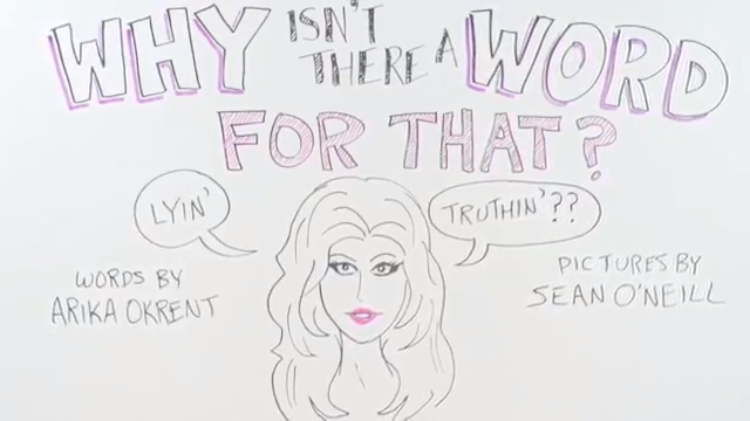Descriptive Words That Don’t Currently Exist in the English Language But Probably Should

In an inquisitive episode of their incredibly informative whiteboard series for Mental Floss, linguist Arika Okrent and illustrator Sean O'Neill verbally and visually explain the concept of lexical gaps - a term for those particular words that don't exist in a language, but probably should. One prescient example of a lexical gap is a term for the opposite of lying.
There are a lot of things it seems we should have a word for, but don't. We have parents, children, siblings"why no word for all your nieces and nephews together? Brazilians have a word for the melancholy yearning for something or someone that you miss. Saudade.Why don't we? We have a verb for lying, and while we have phrases we can use, we don't have a single verb for telling the truth. Languages are full of holes like this.
- Why Some Verbs Became Irregular Within the History of the English Language
- Made Up Verbs That Have Since Become Part of the Common English Lexicon
- How the Limits of One's Own Language Can Impede Recognition of Certain Feelings
The post Descriptive Words That Don't Currently Exist in the English Language But Probably Should appeared first on Laughing Squid.